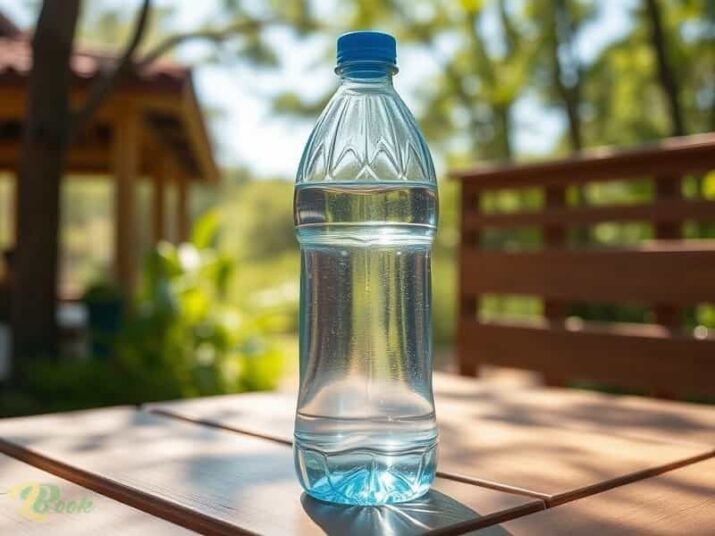Importance of Drinking Water for Health and Its Maintenance
Importance of Drinking Water for Health and Its Maintenance
Introduction
The importance of water to the body is defined as an essential element for life, playing a pivotal role in numerous vital processes. Water is a vital component that cannot be dispensed with; it constitutes about 60% of body weight and directly affects overall health. Water helps regulate body temperature, transport nutrients, and facilitate digestion. Maintaining adequate levels of water is crucial for overall body health and vital functions.
When large amounts of water are lost, organ functions can be severely affected, leading to multiple health issues. In this article, we will explore the benefits of drinking water, the effects of dehydration, and effective ways to maintain body hydration to ensure optimal health. Understanding the importance of water will help us take effective steps to sustain our health and well-being.

Benefits of Drinking Water
Improving Body Functions
Water is the essential component of the human body, making up about 60% of its weight. It plays a vital role in enhancing organ functions, including the heart and kidneys. Water aids in transporting oxygen and nutrients to cells, thereby enhancing the effectiveness of vital processes. Additionally, drinking water helps regulate body temperature, especially during exercise or in hot weather, as the body cools itself through sweating. Moreover, drinking water boosts brain activity, improving concentration and attention. Consuming adequate amounts of water can prevent feelings of fatigue and exhaustion, thereby enhancing overall quality of life.
Promoting Skin Health
The skin is one of the most prominent parts reflecting the body’s health status, and water is essential for maintaining a healthy and radiant appearance. Drinking water helps hydrate the skin and prevent dryness, reducing the appearance of wrinkles and blemishes. When the body receives enough fluids, the skin becomes more elastic and vibrant. Water combats dryness that can lead to skin cracks or premature signs of aging. Additionally, it helps reduce acne and blemishes by flushing out toxins from the body and enhancing blood circulation, resulting in a bright and healthy complexion.
Water and Energy
Increasing Energy Levels
Water is one of the essential elements that contribute to increased energy levels. When the body is dehydrated, a person may experience fatigue and exhaustion, negatively impacting daily performance. The lack of adequate water intake leads to decreased energy levels, resulting in feelings of lethargy and sluggishness. By maintaining hydration, individuals can improve their endurance and activity levels. Therefore, it is advisable to drink water regularly, especially before and after exercising, to enhance energy levels and restore vitality after fatigue.
Improving Physical Performance
When it comes to physical performance, water plays a vital role in enhancing it. Dehydration is one of the primary reasons for reduced endurance and effective performance in physical activities. Muscles rely on water to stay hydrated and function efficiently. Thus, drinking water before, during, and after exercise helps prevent exhaustion and increases endurance. Moreover, drinking water aids in accelerating recovery after workouts, allowing the body to regain strength more quickly and reducing feelings of muscle soreness.
Weight Management
Water as an Aid in Weight Loss
Water is an effective factor in the weight loss process. Drinking water before meals can help reduce appetite and enhance the feeling of fullness, leading to decreased food intake. Water can serve as a good substitute for sugary beverages that contain high calories, helping to lower calorie consumption. Additionally, water aids in improving metabolic processes, facilitating calorie burning. Therefore, it is considered an essential part of any diet aimed at losing or maintaining weight healthily.
Detoxifying the Body
Drinking water supports the functions of organs responsible for detoxifying the body, such as the kidneys. When the body is hydrated, it becomes easier to flush out harmful substances and waste. Water also enhances liver function, which plays a crucial role in processing toxins. Thus, maintaining adequate levels of water contributes to the overall health of the body, leading to improved immune function and reduced risk of illness.
Supporting Digestion
Water and Digestive Health
Water plays a fundamental role in promoting digestive health. It helps break down food and facilitates its passage through the intestines. When the body receives enough fluids, the risk of digestive problems such as acidity and bloating is reduced. Regular water consumption aids in improving digestion and enhances the absorption of essential nutrients from food, ensuring that the body fully benefits from these nutrients. Therefore, drinking water is an integral part of any healthy diet.
Preventing Constipation
Water is one of the main factors in preventing constipation. When the body is dehydrated, bowel movements become more difficult, leading to challenges in defecation. By drinking adequate amounts of water, bowel movements can be improved, and the process of elimination can be facilitated. It is advisable to drink water regularly, especially during the summer or when consuming fiber-rich foods, to ensure digestive health and improve quality of life.
Effects of Dehydration on the Body
Symptoms of Dehydration
Dehydration is a serious condition that can significantly affect the body’s health. Common symptoms of dehydration include extreme thirst, dry mouth, and dizziness. Dehydration can also lead to decreased energy levels and increased fatigue, negatively impacting daily performance. In severe cases, dehydration can cause more serious health problems, such as low blood pressure and loss of consciousness. Therefore, individuals must be aware of the importance of drinking water regularly.
Health Risks of Dehydration
Dehydration can lead to a range of health risks, including cardiovascular and circulatory problems. When the body lacks water, the heart has to exert more pressure to pump blood, which can lead to health complications. Additionally, dehydration negatively affects brain function, increasing the risk of headaches and confusion. Therefore, maintaining adequate water levels is essential for overall body health.

Sources of Water
Drinking Pure Water
Pure water is the best option for maintaining hydration. The water we drink should be clean and free of contaminants. It is advisable to drink water from reliable sources, such as treated tap water or bottled water. Drinking pure water ensures access to health benefits without potential risks. Pure water can effectively improve overall health and enhance bodily functions.
Other Sources of Water
Water can be obtained from other sources, such as fruits and vegetables. Many fruits, such as watermelon and oranges, contain high amounts of water, making them excellent options for enhancing hydration. Additionally, other beverages, such as tea and natural juices, can play a role in increasing water intake, but attention must be paid to their sugar content. Consuming these foods and drinks can be a delicious way to maintain body hydration.
How to Maintain Water Levels
Determining the Right Quantity
The amount of water needed by the body depends on several factors, including age, weight, and activity level. It is generally recommended to drink about 2-3 liters of water daily, but this amount may need to increase during hot weather or when exercising. Listening to your body and recognizing thirst cues can help determine the appropriate amount. It is important to be aware of your body’s needs and ensure these needs are met daily. Using apps or devices to remind you to drink water can be helpful if you struggle to manage your drinking habits.
Drinking Strategies
Certain strategies can help increase water consumption. For example, carrying a water bottle throughout the day can make it easier to remember to drink. It is also advisable to establish a drinking schedule, such as having a glass of water before each meal or after every hour. Adding natural flavors, such as lemon slices or mint, can make drinking water more appealing and encourage a desire to drink more. You might also set alarms to remind yourself to drink water at specified times, making this habit an integral part of your lifestyle.
Water and Mental Health
Impact of Water on Mood
Dehydration can negatively affect mood. When water levels in the body drop, a person may feel anxious or depressed. Maintaining adequate water levels can help improve mood and enhance feelings of well-being. Thus, drinking water is an essential part of mental health care, contributing to overall quality of life. Improving mood through proper hydration can also lead to enhanced social relationships and increased productivity.
Water and Brain Health
Water is a necessary element for brain health. It helps improve concentration and memory while reducing the risk of headaches. Maintaining body hydration can enhance cognitive performance, supporting clear thinking and sound decision-making. Therefore, drinking water regularly to support brain health contributes to improving overall quality of life. Adequate water intake can foster creativity and problem-solving abilities, benefitting all aspects of life.
Tips for Children
Educating Children About the Importance of Water
It is crucial to teach children the importance of drinking water from an early age. This can help establish healthy habits that last a lifetime. Fun educational activities related to the benefits of water, such as games or stories, can enhance interest in this vital element. Families can also involve children in preparing healthy water-rich drinks, making them excited about consuming water.
Water in Schools
Schools should provide clean, easily accessible water sources for students. Classrooms can contribute to promoting a culture of water consumption by reminding students of the importance of hydration. Additionally, awareness campaigns can be organized to promote healthy habits among students, helping to improve the overall health of the younger age group. Schools can also organize competitions or events that encourage students to drink more water, fostering a spirit of cooperation and healthy competition.
Water and the Elderly
Importance of Water in Aging
The importance of water increases with age, as the body becomes less capable of retaining water. Dehydration can exacerbate many health issues related to aging, such as heart problems and memory decline. Therefore, it is essential for the elderly to be aware of their hydration needs and to ensure they drink adequate amounts of water regularly. Family guidance is crucial here, as families can help remind seniors to drink water.
Drinking Strategies for Seniors
Certain strategies can assist seniors in maintaining good water levels. For example, placing water bottles in visible locations around the house can remind them to drink. It is also advisable to monitor their water intake and ensure they are getting enough fluids. These simple yet effective steps can enhance the overall health of seniors, contributing to improved quality of life.
Recommendations
To maintain body health through drinking water, it is advisable to determine the appropriate quantity of water based on individual needs. Using water bottles can serve as a reminder to drink throughout the day. It is also beneficial to incorporate water-rich foods into the diet, such as fruits and vegetables.
Additionally, making simple lifestyle changes, such as establishing drinking schedules and reminding oneself of the need for hydration, can significantly improve water consumption habits. Raising awareness among children and seniors about the importance will ensure better health. These healthful habits will contribute to improving the overall quality of life.

Conclusion
Drinking water is an essential component for maintaining overall body health and vital functions. By understanding the benefits of water and methods to maintain hydration, everyone can enhance their health and quality of life. Therefore, we should all commit to healthy habits that include regular water consumption, which contributes to promoting our health and well-being. Paying attention to the topic of water is not just a suggestion but a necessity for a healthy life, and thus, we must be diligent in being guardians of our health by ensuring adequate hydration.







